Definitions of media literacy remain contested, with different dimensions emphasised or marginalised. Arguably the biggest concern in attempting to reach a consensus on a definition of media literacy is the tendency in some policy statements to undervalue the importance of critical or creative/ communicative dimensions. Definitions vary, and include:
‘The ability to access, analyse, evaluate and communicate messages in a variety of forms’ (US National Leadership Conference on Media Literacy, Pat Aufderheide, 1993). Aufderheide’s full definition can be found at:
http://www.frankwbaker.com/Media_Lit_Quotes.html
‘The ability to use, understand and create media and communications’ (Ofcom). Ofcom’s full outline of media literacy can be found at:
http://stakeholders.ofcom.org.uk/market-data-research/other/media-literacy/
Sonia Livingstone also uses this definition, which is expressed in her discussion on media literacy, which can be found at:
http://eprints.lse.ac.uk/1027/1/What_is_media_literacy_%28LSERO%29.pdf
‘Media literacy relates to the ability to access the media, to understand and critically evaluate different aspects of the media and media content and to create communications in a variety of contexts.’ (European Commission). This definition is given here:
http://ec.europa.eu/culture/media/media-literacy/index_en.htm
1. Background
Media Literacy in the UK
Ofcom:
In aiming to meet this statutory mandate, Ofcom undertakes research into UK citizens’ media literacy needs in order to inform and support public policy initiatives. Ofcom’s research initiatives in this regard are broadly classified into three categories: children’s research, adults’ research, and nations’ research. Ofcom’s Media Literacy Audits for children and parents are undertaken regularly, followed by the publication of detailed reports (the most recent in October 2013). You can view the reports here:
A commentary of the reports by Sonia Livingstone:
Ofcom researches various aspects of children’s media usage and literacy, including children and parents’ attitudes to diverse media; the websites visited by children; how parental controls are exercised and evaluated; and children’s television viewing preferences at different times in the day.
Ofcom similarly undertakes in-depth research into adults’ media use and attitudes (the most recent published in 2013). It also investigates related topics, including people’s habits and attitudes in the online world (June 2013), and how people make use of the internet (July 2012).
The full June 2013 report ‘Being online: an investigation of people’s habits and attitudes’:
http://stakeholders.ofcom.org.uk/binaries/research/media-literacy/being-online.pdf
The full July 2013 report ‘Internet use and attitudes’:
http://stakeholders.ofcom.org.uk/binaries/research/cmr/cmr12/2012_metrics_bulletin.pdf
Ofcom similarly compiles a report that combines a number of media metrics relating to parents and children ‘in the nations’ – i.e. in England, Northern Ireland, Scotland and Wales, as well as across the UK (the latest report was published in February 2013).
But as argued by Svenja Ottovordemgentschenfelde, while Ofcom thus does much to support media literacy initiatives in the UK, it is charged with not only supporting but with also actively promoting media literacy for UK citizens – a role that Ofcom is arguably at risk of neglecting at the moment.
While Britain traditionally at the forefront of media literacy and media education initiatives, new research suggests that the UK is lagging behind in funding, training and policy; and there is a perception that, since the 2011 election, there has been a reluctance on the part of politicians to take inclusive and sustainable media literacy initiatives forward. A blog post by Julian McDougall on media and information education in the UK can be accessed here:
A blog post by Svenja Ottovordemgentschenfelde on new research in media literacy can be accessed here:
This apparent lack of political will is worrying in light of express recognition by the government of the importance to encourage media literacy initiatives – on more than one occasion:
- In the Digital Britain Interim Report (2009: 5)
“The necessary education, skills and media literacy programmes to allow everyone in society to benefit from the digital revolution will be a central part of the Digital Britain work and key to our success.”
Retrieved from:
https://www.gov.uk/government/uploads/system/uploads/attachment_data/file/238653/7548.pdf
- In a March 2011 letter to Professor Sonia Livingstone, Secretary of State for Culture, Olympics, Media and Sport, Rt Hon Jeremy Hunt MP explained that media literacy is indeed ‘a priority’ for the government.
Hunt’s letter can be accessed here:
http://www.scribd.com/doc/54695321/Hunt-Letter-to-Livingstone-Media-Literacy
As the government’s own analysis of UK social trends reveals, the ‘e-society’ is advancing steadily (if unevenly and unequally). An article that overviews e-society:
http://www.scribd.com/doc/54695382/Social-Trends-Spotlight-on-e-Society
While more and more services move online due to the growth of the ‘e-society’, digital participation becomes increasingly important. An Ofcom report on Internet Citizens: Use of selected citizen-related online content and services (2013):
http://stakeholders.ofcom.org.uk/binaries/research/telecoms-research/Internet-Citizens-Report.pdf
Communications Consumer Panel: The Consumer Framework for Digital Participation:
Media Literacy in the EU
“I want to assure you that I take digital literacy seriously”, said Neelie Kroes, the EC’s Commissioner for the Digital Agenda and Vice-President of the European Commission, in 2009. And more recently, in early 2014, she confirmed the importance of the internet but also warned about the risks involved with digital technologies. During a speech at the World Economic Forum, she said: ‘Europe’s leaders have recognised the large and growing role digital plays in our economy. And they have supported our plans to bring down the barriers that stand in the way.’Kroes’ full speech can be read here:
http://europa.eu/rapid/press-release_SPEECH-14-49_en.htm
“We must make sure everyone is media literate so nobody is left out,” said Viviane Reding, European Commissioner for Justice, Fundamental Rights and Citizenship in 2009.
In January 2013 the High Level Group on Media Freedom and Pluralism recommended (among other things) that ‘[m]edia literacy should be taught in schools starting at high‐school level. The role media plays in a functioning democracy should be critically assessed as part of national curricula, integrated either with civics or social studies.’ Following this report, the EC made various recommendations, including one aimed at improving media literacy. The report can be found at:
http://ec.europa.eu/digital-agenda/en/high-level-group-media-freedom-and-pluralism
The task of producing indicators is now underway, building on the work of EAVI Consortium (European Association for Viewers’ Interests (EAVI), CLEMI, Universitat Autonoma de Barcelona, Université Catholique de Louvain and the University of Tampere): Study on Assessment Criteria for Media Literacy Levels – A comprehensive view of the concept of media literacy and an understanding of how media literacy level in Europe should be assessed (2009). See full list of studies:
http://ec.europa.eu/culture/media/media-literacy/studies_en.htm
Media Literacy Internationally
The UIS and UNESCO’s Communication and Information Sector, in collaboration with an international advisory panel of experts, have developed a framework to measure media information literacy in countries at different stages of development. The Global Media and Information Literacy (MIL) Framework can be downloaded from here:
http://www.uis.unesco.org/Communication/Pages/default.aspx
Canada’s Centre for Digital and Media Literacy, MediaSmarts, operates with the vision that ‘children and youth have the critical thinking skills to engage with media as active and informed digital citizens’. For this reason, MediaSmarts develops digital and media literacy programmes and resources for Canadian homes, schools and communities: ‘We support adults with information and tools so they can help children and teens develop the critical thinking skills they need for interacting with the media they love.’ More information on their fundamentals for digital and media literacy can be found here:
http://mediasmarts.ca/digital-media-literacy-fundamentals
In Australia, the Australian Communications and Media Authority has an online resource that combines research, activities and reports on media and digital literacy in the country.
In the United States, the first Media Literacy Conference was held in 1995 in North Carolina with approximately 400 participants. After a continual growth of dialogue emerged, the Alliance for a Media Literate America was formed in June, 2001, which was dedicated to the promotion of media literacy education. A full history of media literacy in the U.S. can be found at:
http://www.medialit.org/evolution-vision
2. Key Documents
UK: For the first time in UK law, section 11 of the Communication Act 2003 gave the Office of Communications (Ofcom) a statutory duty to take steps to promote media literacy. Section 11 of the Act can be accessed here:
http://www.legislation.gov.uk/ukpga/2003/21/section/11
The Bailey Review investigates how children in England are under increasing pressure to ‘grow up too quickly’. A progress report was published on 24 May 2013. Both documents are produced by UKCCIS (UK Council for Child Internet Safety).
Bailey Review Progress Report:
https://www.gov.uk/government/publications/letting-children-be-children-progress-report
The Wolf Review, which investigated vocational training, was commissioned by the Department for Education (DfE) and published in March 2011:
While the BBC’s First Click initiative is no longer operative, a useful guide for first-time internet users is still available for free download. The BBC’s media literacy strategy, published in May 2013, confirms the need to promote media literacy, as outlined in the 2006 BBC Charter Agreement. The 2017 BBC Charter Review may arguably lead to changes in this regard. Access the Media Literacy Strategy here:
http://www.bbc.co.uk/learning/overview/about/assets/bbc_media_literacy_strategy_may2013.pdf
The Next Gen Report, published in January 2011, made various recommendations to help the UK become a more popular talent hub for visual effects and visual games. But, as pointed out earlier on the LSE Media Policy Project blog, in conjunction with the curriculum changes, the recommendations ‘will place media education in the UK in further ‘limbo’’. Download the full report here:
http://www.nesta.org.uk/publications/next-gen
The Review of the National Curriculum (Department for Education) has been completed and the 2014 National Curriculum has been published, proposing significant reforms to what is taught in schools:
https://www.gov.uk/government/collections/national-curriculum
EU:
The EC’s Digital Agenda for 2020, which aims to help ‘reboot the EU economy’ and ‘enable Europe’s citizens and businesses to get the most out of digital technologies’ , emphasises the importance of digital literacy, with one of its seven pillars being dedicated to digital literacy, skills and inclusion. As it explains: ‘As ever more daily tasks are carried out online, everyone needs enhanced digital skills to participate fully in society. The Digital Agenda tackles the digital divide.’ More details on this pillar and the associated list of actions:
As part of the Lisbon strategy, in response to calls from the European Parliament and from the media and communication sector, and informed by the High Level Expert Group (2008), the European Commission has worked to promote media literacy as follows:
Communication on media literacy (2007) – alerted member states to the importance of media literacy:
Audiovisual Media Services (AVMS) Directive 2007/65/EC – article 26 introduced a three-yearly reporting obligation regarding levels of media literacy in all member states. The full Directive 2007/65/EC can be accessed here (Amendment to Article 26 is found on p. 332/44):
http://eur-lex.europa.eu/LexUriServ/LexUriServ.do?uri=CELEX:32007L0065:en:NOT
Recommendation on media literacy in the digital environment for a more competitive audio-visual and content industry and an inclusive knowledge society, EC(2009) 6464 final. In this Recommendation, the Commission recommended that:
“the Member States […] open a debate in conferences and other public events on the inclusion of media literacy in the compulsory education curriculum, and as part of the provision of key competences for lifelong learning, set out in the Recommendation of the European Parliament and of the Council of 18 December 2006 on key competences for lifelong learning”. The 2006 and 2009 recommendations can be accessed, respectively, here:
http://eur-lex.europa.eu/LexUriServ/LexUriServ.do?uri=CELEX:32006H0962:EN:HTML
and
http://eur-lex.europa.eu/LexUriServ/LexUriServ.do?uri=OJ:L:2009:227:0009:01:EN:HTML
See also the Brussels Declaration on Lifelong Media Education from over 300 media literacy experts (in French):
http://www.csem.be/csem/rencontres/declaration_bruxelles/experts
International:
The OECD identifies a range of key competencies essential for full participation in society, several of which relate to media or digital literacy (including the ability to use knowledge, information and technologies interactively). Access their full Executive Summary:
http://www.oecd.org/dataoecd/47/61/35070367.pdf
UNESCO: ‘Information and media literacy enables people to interpret and make informed judgments as users of information and media, as well as to become skillful creators and producers of information and media messages in their own right.’ See particularly the UNESCO Institute of Statistics (UIS) section on information literacy:
http://www.uis.unesco.org/Library/Pages/default.aspx
In 1982, UNESCO issued the Grunwald Declaration at the International Symposium on Media Education in Grunwald, Germany. The Declaration was used as a means for educators to justify media education, and to promote media education globally. The Declaration can be accessed here:
http://portal.unesco.org/ci/en/ev.php-URL_ID=27310&URL_DO=DO_TOPIC&URL_SECTION=201.html
In the United States, Renee Hobbs, R. (2010) has produced Digital and media literacy: A plan of action aimed at incorporating digital and media literacy education into formal and informal settings through a community education movement:
http://works.bepress.com/reneehobbs/13/
FCC Commissioner Mignon Clyburn on the recommendation for a National Digital Literacy plan:
“Nothing can open more doors for a person than literacy. But knowing how to read is no longer sufficient to be ‘literate’ in the 21st Century. Basic literacy must be supplemented with digital literacy” (Clyburn, 2010: 4). Full recommendation:
http://hraunfoss.fcc.gov/edocs_public/attachmatch/doc-296738a1.pdf
3. Key Participants
UK:
Ofcom: In aiming to meet this statutory mandate, Ofcom undertakes research into UK citizens’ media literacy needs in order to inform and support public policy initiatives. Ofcom’s research initiatives in this regard are broadly classified into three categories: children’s research, adults’ research, and nations’ research. An index of their research on media literacy can be accessed here:
http://stakeholders.ofcom.org.uk/market-data-research/media-literacy-pubs/
Communications Consumer Panel: This Panel consists of eight independent experts who work to protect and promote people’s interests in the communications sector, and was established by the Communications Act 2003. The Panel conducts research and provides advice to Ofcom, the Government, the EU, and the industry on how to consider consumer persepctives. Their website can be accessed here:
http://www.communicationsconsumerpanel.org.uk/
Svenja Ottovordemgentschenfelde: PhD at the London School of Economics who studies Ofcom’s support of media literacy initiatives in the UK. A full description of her research and research interests can be found here:
http://www.lse.ac.uk/media@lse/WhosWho/PhdStudents/Svenja-Ottovordemgentschenfelde.aspx
Participants in ongoing policy initiatives include:
UKNC: The UK National Commission for UNESCO (UKNC) is a leading force in UNESCO’s initiatives for media literacy. They aim to strengthen the internationalist dimension of media literacy in the UK, and to raise awareness and understanding among UK Government of the importance of media literacies for democracies: Access their website here:
http://www.unesco.org.uk/media_literacy
Go On UK: promote digital and internet literacy. See its three-point plan for 2013/14):
http://www.go-on.co.uk/opportunity/
Martha Lane: Lane was appointed as the UK’s Digital Champion in 2010, resigned at the end of 2012. The Digital Champion’s remit is to ‘encourage as many people as possible to go online, and improving the convenience and efficiency of public services by driving online delivery’. Read her resignation letter here:
https://www.gov.uk/government/publications/martha-lane-fox-resignation-letter
UK Council for Child Internet Safety (UKCCIS) is a group of more than 200 organisations drawn from across government, industry, law, academia and charity sectors that work in partnership to help keep children safe online. Among other things, UKCCIS has created a code of practice for internet parental controls, published in October 2011.
UKCCIS Code of Practice:
More information on UKCCIS, including achievements, board members, and the Executive board:
https://www.gov.uk/government/policy-advisory-groups/uk-council-for-child-internet-safety-ukccis
The DfE Technology Policy Team, tasked with developing ICT in schools, was abolished in April 2012. An article on the abolishment can be found at:
http://www.educationinvestor.co.uk/ShowArticle.aspx?ID=2734&AspxAutoDetectCookieSupport=1
Media Smart develops and provides free educational materials that teach children to think critically about advertising in the context of their daily lives. Media Smart offers a range of innovative and interactive materials for parents, educators and children:
There are also various other non-governmental national initiatives in the UK:
Learning for the Fourth Age (L4A) aims to provide educational and learning services to frail elderly people who live in residential accommodation settings, using multimedia resources:
Citizens Online is a national charity that aims to tackle the issues of digital exclusion, to make sure that the Internet is available to everybody, and to help individuals and communities understand and gain the benefits of being online. This charity has a variety of valuable projects around the UK aimed at encouraging digital inclusion.
http://www.citizensonline.org.uk/
Age UK works towards improving ‘later life’ of UK citizens through information and advice, campaigns, products, training and research. The organisation, for instance, offers computer classes across the country for older people to allow them to have access to the advantages of the internet and computers.
Digital Unite is an independent organisation that offers digital skills training and promotes the benefits of computers, tablets and the internet to older people. Useful guides to a variety of topics are offered on their website, including how to use Skype, basic computer skills, how to join social networking websites and how to use email.
AMES: The Association for Media Education in Scotland was formed in 1983 at Stirling University with the purpose of promoting media education. They now publish a bi-annual journal, the Media Education Journal, and hold an annual conference. Access their website here:
http://www.mediaedscotland.org.uk/
EU:
Neelie Kroes: High-Level Group on Media Freedom and Pluralism: This independent group was established in October 2011 by Vice-President Neelie Kroes, and is chaired by Vaira Vike-Freiberga, the former President of Latvia. Their mandate was to create a report for the European Commission with recommendations that aim to respect, protect, support, and promote pluralism and freedom of the media in Europe. More details on this group can be found on their website:
http://ec.europa.eu/digital-agenda/en/high-level-group-media-freedom-and-pluralism
Media Literacy Expert Group: In 2005, the European Parliament requested that the European Commission launch an initiative on media literacy. As a result, the EC formed the Media Literacy Expert Group, made up of media literacy experts from a wide range of backgrounds and experience. This included members from academia, the audiovisual and media industry, international organisations, and regulators in media institutions. For more information and to access the full list of members, follow this link:
http://ec.europa.eu/culture/media/media-literacy/expert-group-2006_en.htm
EU Kids Online: This multi-national thematic network aims to “stimulate and coordinate investigation into children’s online uses, activities, risks and safety”. EU Kids Online also publishes a wide variety of research and resources for media education. Links to their reports and contact details can be found at:
http://www.lse.ac.uk/media@lse/research/EUKidsOnline/Home.aspx
EAVI: The European Association for Viewers Interests is a non-profit international civil society organisation based out of Brussels, and aims to work with European and other international institutions to contribute to the empowerment of EU citizens through the field of media. It was formally established with the support of the European Commission. EAVI works on a variety of projects, reports, and conferences in order to promote active citizenship and media literacy, and engage European institutions and media stakeholders. A link to their website:
EuroMeduc: The European Congress on Media Literacy (EuroMeduc) promotes media education in Europe. The aim to set up structured media education programs and research findings, and sustain networks in the field of media education. The last congress was held in 2009. Their publications on media literacy can be accessed on their website:
International:
OECD: The Organisation for Economic Co-operation and Development aims to promote policies that will improve the economic and social well-being of people around the world, and currently has 34 member states. One of their key topics is the Internet, consisting of issues surrounding broadband and telecom, internet economy, consumer policy, and public sector innovation and e-government.
Access to their website, including published reports:
UNESCO: The United National Educational, Scientific, and Cultural Organization’s (UNESCO) Institute for Statistics acts as an official source for literacy data. They are responsible for monitoring international literacy targets associated with Educational for All (EFA) and the Millenium Development Goals (MDGs). More information on their research and international goals can be found at:
http://www.uis.unesco.org/Literacy/Pages/default.aspx
UNESCO’s Media Literacy webpage with links to detailed actions for media education and literacy:
http://portal.unesco.org/ci/en/ev.php-URL_ID=27056&URL_DO=DO_TOPIC&URL_SECTION=201.html
MediaSmarts: Formerly known as the Media Awareness Network, MediaSmarts emerged as part of a TV violence initiative by the Canadian Radio-Television and Telecommunications Commission (CRTC) in the early 1990s. They now act as a resource for educators, youth, and policy-makers on digital and media literacy among young Canadians. Their website provides more details on their mission and history, as well as resources for researchers, policy-makers, educators, etc.:
http://mediasmarts.ca/about-us/mission-beliefs
Media Literacy Network: This non-profit foundation, founded by Liesbeth Hop and Bamber Delver and based in the Netherlands, aims to develop media literacy projects around various topics, such as safe Internet, digital bullying, sexualisation of the media, the Mobile Internet, online privacy, transmedia storytelling, etc. They also work with major universities around the world to initiate studies on media and youth related topics. Access their website here:
http://www.medialiteracynetwork.org/
Appendix
A) Academic research foci (by Sonia Livingstone)
With the growing importance of media, information and communications in society, media literacy contributes to:
- democracy, participation and active citizenship;
- the knowledge economy, competitiveness and choice; and
- lifelong learning, cultural expression and personal fulfilment.
But academic research suggests that media literacy initiatives are still needed:
- By the whole population, since they are faced with rapid changes in the choices, complexity and importance of communication technologies;
- By disadvantaged populations in particular (e.g. young, elderly, poor, disabled, ethnic minorities), for whom knowledge gaps compound prior disadvantage;
- In areas of importance to the state (e.g. health, civic participation, e-government, e-commerce, creativity/innovation, digital take-up/switchover), since currently the population does not meet government expectations;
- In areas of importance to citizens (e.g. for empowerment, alternative lifestyles or politics, critical information skills, creative production)
Also, key questions persist (with links to relevant articles):
- Is media literacy about empowerment or protectionism?
http://www.chrisboulton.org/caucus/papers/buckingham.pdf
- Should media literacy be defined minimally or ambitiously?
http://eprints.lse.ac.uk/1017/
- What does research show about media literacy?
http://stakeholders.ofcom.org.uk/binaries/research/media-literacy/aml.pdf
- What new challenges do new media pose for media literacy (for adults and for children respectively?):
- Do media literacy interventions work?
There are significant differences between the post-test scores of experimental and control groups, indicating that the media literacy course offered to college students was ‘at least partially successful’ in achieving the course goals of improving knowledge of media structures, increasing awareness of media influence, and being critical of implied messages. (Duran, Yousman, Walsh, and Longshore, 2008)
http://www.scribd.com/doc/55263565
Media literacy interventions can be helpful or harmful. Students who had the cognitive activity after the lesson about violence in media reported a reduction in willingness to use aggression, while children who did not had the cognitive activity after the lesson reported an increase in willingness to use aggression. The media literacy lesson offered might have brought students’ attention to violence without helping to develop the cognitive skills required to process the information. Future studies should have more refined comparative conditions in order to understand the boomerang effect, and determine what factor in each condition works or does not work. (Byrne, 2009)
http://www.scribd.com/doc/55263962
Survey conducted to a random sample of U.S. university students shows that those who are more critical about tobacco use in advertisements, TV and movies (‘smoking media literacy’) are significantly less likely to be current smokers (Primack, Sidani, Carroll, and Fine 2009).
http://www.scribd.com/doc/55097388/media-literacy-dossier-primack-et-al-2009-summarybywang
Media detective: “Media Detective is a media literacy education program for 3rd- to 5th-grade students. The goal of the program is to prevent or delay the onset of underage alcohol and tobacco use by enhancing the critical thinking skills of students so they become adept in deconstructing media messages, particularly those related to alcohol and tobacco products, and by encouraging healthy beliefs and attitudes about abstaining from alcohol and tobacco use.”
http://www.irtinc.us/Products/MediaDetective/Findings.aspx
- Why is critical media literacy important?
http://ucla.academia.edu/jeffshare/papers/124672
- Aren’t young people already media literate?
http://onlinelibrary.wiley.com/doi/10.1080/01411920902989227/abstract
- What do recent research findings show?
Although economic capital is the first and foremost mediating factor in digital divide, cultural and social capital are also important factors as the possession of them means having the know-how and resources to operate and engage with technologies meaningfully at the personal level. (Grant, 2007)
http://www.scribd.com/doc/55264195
Children’s digital skills should be enhanced through regular education, focusing especially on information and strategic skills (given their already high level of operational skills). As to the elderly, the illiterate, the disabled, and ethnic minority, there should be special courses offered to them, adapting to their needs, learning pace and style. If nothing is done, the “information and strategic skill divide” will continue to widen, with the skilled people being able to take advantage of the Internet to achieve their personal goals, while the less skilled continue their struggle to locate correct information. (van Deursen and van Dijk, 2009)
http://www.scribd.com/doc/55098620/media-literacy-dossier-deursen-and-dijk-2009-summarybywang
Regarding content-sharing online, although there is significant difference between genders, after controlling for internet experiences, the difference no longer exists. In other words, users’ online ability mediates online content-sharing. (Hargittai and Walejko, 2008)
http://www.scribd.com/doc/55099354/media-literacy-dossier-hargittai-and-walejko-2008-summarybywang
“[N]ew digital media, due to their interactive and highly socializing nature, are more adept at breeding the social and cultural competencies needed for a full participation in today’s digital environment than traditional media, which are inherently more passive” (Literat, 2011):
http://www.scribd.com/doc/55097945/Media-Literacy-Dossier-Literat-2011-SummarybyWang
Blog post at the following links:
http://www.newmedialiteracies.org/2011/02/measuring_new_media_literacies/
http://www.newmedialiteracies.org/2011/02/measuring_new_media_literacies_1/
When given the opportunities to learn about political participation online through digital media literacy education, students are more likely to engage in political participation online. (Kahne, 2010)
http://www.scribd.com/doc/55097725/media-literacy-dossier-kahne-et-al-2010-summarybywang
“Teens who have poor health literacy are more likely to search for sexual health information using slang terms, which may lead to less credible Web sites.” (Brown, Keller, and Stern, 2009)
http://www.scribd.com/doc/55098865/media-literacy-dossier-brown-et-al-2009-summarybywang
- Far from promoting empowerment, is media literacy really a neoliberal strategy to reduce top down regulation?
As the UK’s then Secretary of State for Culture, Media and Sport, Tessa Jowell, stated: ‘if people can take greater personal responsibility for what they watch and listen to, that will in itself lessen the need for regulatory intervention’ (The Daily Mail, 21/1/2004, p. 23).
Ofcom concurred: Robin Foster, Ofcom’s Partner for Strategy and Market Developments in 2005, said,
“As regulators and policy makers we need to radically adapt the way we think about the communications sector as this group evolves into the mainstream. And we need to start doing this now. We will have to learn to rely more on markets than ever before. And we need to rely more on individual consumers and on companies exercising responsibility in those markets, with increasing emphasis on self-regulation and co-regulation.”
Full text:
Pressing policy questions:
- Does the evidence show that media literacy is increasing?
- Can such increases, if any, be attributed to policy efforts to promote media literacy?
- How can media literacy initiatives and interventions be meaningfully evaluated?
- What policy recommendations would result and will policy-makers follow them?
- Who is getting left out of media literacy opportunities?
- Which dimensions of media literacy tend to get neglected (Critical? Creative?)
- Can teachers be held primarily responsible for teaching children about media literacy?
- How can adults be reached, once they have left school, to increase and update their media literacy?
- Should it remain Ofcom’s remit to promote media literacy?
- Should internet safety be a key pillar in media literacy or, even, should it be part of a separate policy? (For UK policy on internet safety, see http://www.education.gov.uk/ukccis)
- As a new UK Communications Act is announced, should the present section 11 be maintained, altered or dropped? What would be the justification, the evidence base, for any of these decisions?
http://www.culture.gov.uk/news/news_stories/7725.aspx
- If media literacy is no longer actively promoted as part of UK public policy, who will be the biggest losers and why?


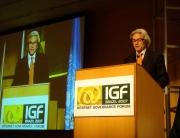
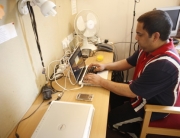
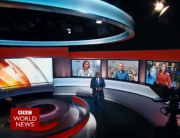

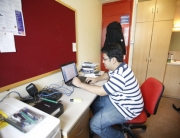

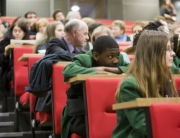

[…] more information on media literacy, check out the LSE Media Policy Project’s new Idiot’s Guide on Media Literacy in the UK and Europe, as well as blog posts on media literacy from our experts. For regular updates of blog posts, […]